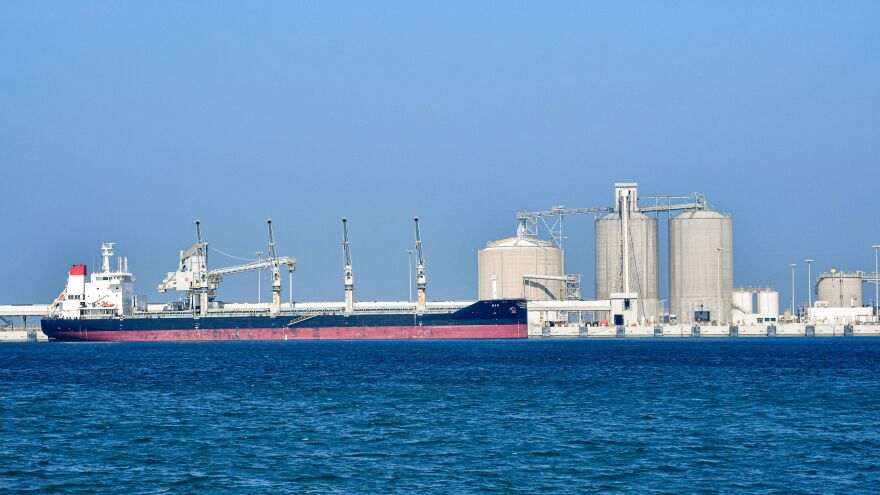Updated at 11:45 a.m. ET
The global oil industry is about to test just how much crude oil it can transport and store, according to an intergovernmental agency, as disappearing oil demand creates an unprecedented glut of crude oil.
The imbalance is keeping prices extraordinarily low. The price of West Texas Intermediate, a benchmark for American crude, has plunged to below $20 from around $60 per barrel at the start of the year.
The International Energy Agency sees oil demand falling by a record amount this year because of pandemic-induced lockdowns around the world. In April alone, it says demand will be down 29 million barrels per day from a year ago. That's a huge drop: Last year, the world consumed an average 100 million barrels per day.
The IEA says the world's appetite for oil hasn't been this low since 1995. The global economy has nearly doubled in size since then, according to inflation-adjusted GDP.
Producers are scrambling to cut output: OPEC and its allies, after weeks of turmoil that contributed to the oversupply, have agreed to a record amount of voluntary cuts in state oil production in order to balance out the markets. Meanwhile, many private companies are facing involuntary cuts because they can't afford to keep operating wells at a loss.
But the drop in demand is so abrupt and intense that "there is no feasible agreement that could cut supply by enough to offset such near-term demand losses," the IEA says.
As a result, the global oil market is facing an enormous excess of oil.
The buildup "threatens to overwhelm the logistics of the oil industry — ships, pipelines and storage tanks — in the coming weeks," the IEA says.
Countries including China and the U.S. are considering filling massive underground storage caverns with crude, taking advantage of low prices and helping relieve the pressure on other storage and transport systems. Tankers, usually used to transport oil around the world, can also be used as floating storage.
The total capacity of storage tanks is one limitation, but the world may experience a storage crisis well before hitting that absolute limit; for instance, if there's no pipeline space to get oil to a port.
The unprecedented situation has made once-impossible proposals seem suddenly realistic. For the first time in nearly 50 years, Texas regulators are seriously considering production limits. And while the U.S. once regarded OPEC as a foe, President Trump actively helped the oil cartel strike its deal to cut production.
Copyright 2021 NPR. To see more, visit https://www.npr.org.








